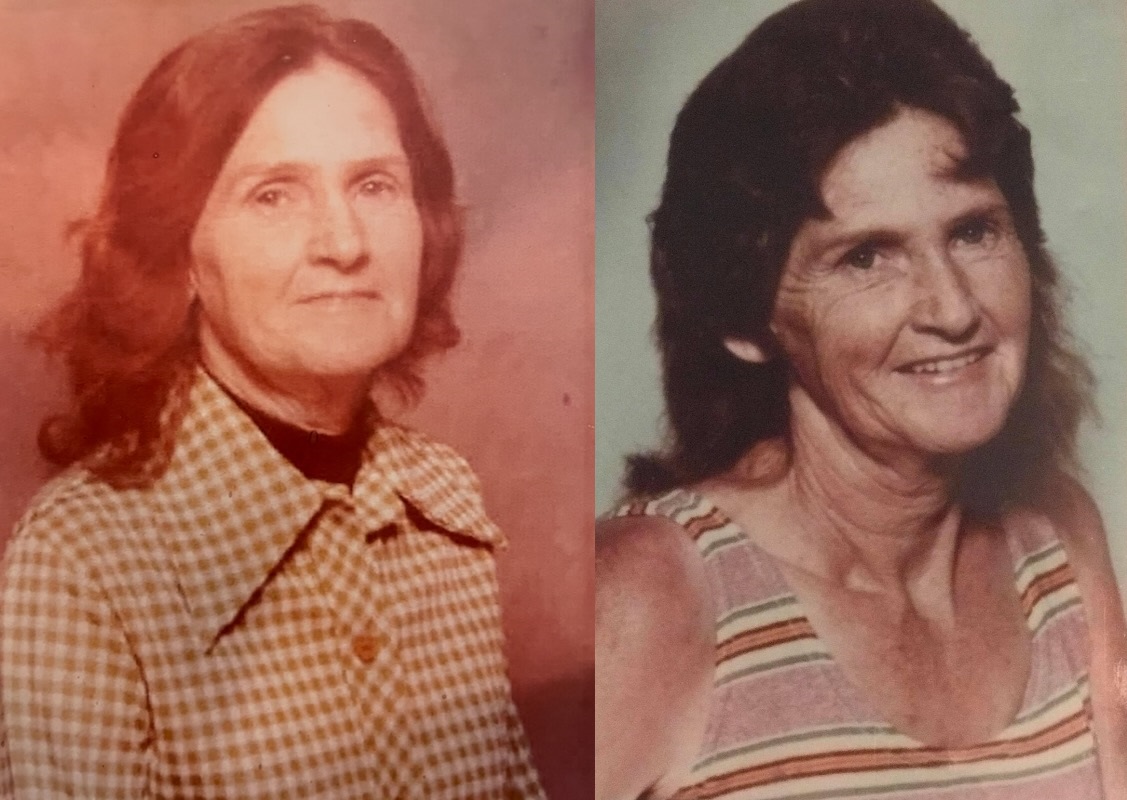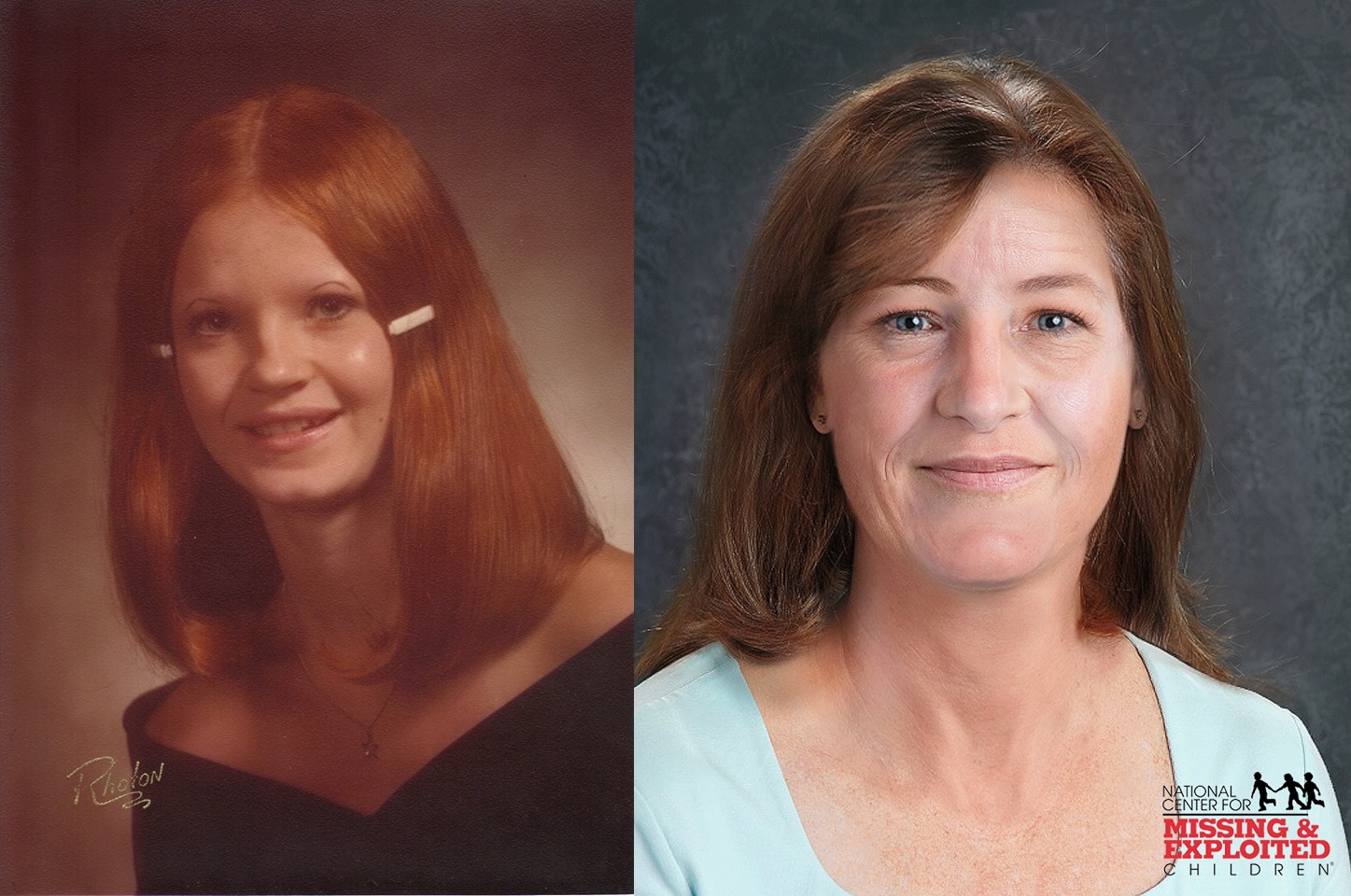For more than four decades, two Missouri families have been among an untold number who are going through the anguish of not knowing what happened to a loved one who simply vanished. Backers of a proposal coming before a House committee this week say its passage could be the key to immediate answers in those cases and many more, not just in Missouri but nationwide.

“I still have hope. I still hope we can get something done,” Steve Crump said. He has never stopped looking for his mother, who has been missing for 47 years.
53-year-old Geneva Verneal Adams usually didn’t go out at night, and she didn’t drink, but she loved to dance, so on July 14, 1976, she asked her daughter to go out with her. Lonely after her first husband had died and a second marriage ended in divorce, she was smiling big when she left, hoping to have a fun night out.
Her daughter decided to call it a night early, but Adams was enjoying dancing with a man she’d met at the Artesian Lounge in Herculaneum and opted to stay. Adams left the bar with him around 1 the next morning. What happened to her after that has never been known.
Crump, who was 17 when his mother went missing, has never given up looking. Many years and many disappointments later, a police officer – the son of one of the original detectives on his mother’s case – gave him another glimmer of hope. He had learned of a body that had been found just weeks after his mother disappeared and in the same general area, went unidentified, and was buried not far away in Illinois. Many of its characteristics matched those of his mother, and it was going to be exhumed to see if this was Geneva.
When the grave was opened, it was empty.
Some 90 miles away and three years after Geneva disappeared, 19-year-old Cheryl Anne Scherer called home from her job at a small self-service gas station in Scott City. She talked to her mother about what would be served for dinner that night and some sewing Scherer planned to do when she got home. Authorities can account for all but ten minutes of what went on after that phone call, and in that ten-minute window, something happened to Scherer and her family never heard from her again.

More than 14 years passed before Diane Scherer-Morris accepted that her sister might never come.
“I can attest to my dad sitting on the stair steps, because the phone was next to the, going up the stairs, and just sitting there and sobbing sometimes because he just wanted that phone to ring … but we never got the phone call that it was her, or that they’d found her,” Diane told House Communications.
Both of these are families holding on to hope, and both of them could stand another chance of finally getting closure through the passage of House Bill 1716.
Both are asking lawmakers to give them that chance.
HB 1716 would require that all law enforcement agencies in Missouri participate in the National Missing and Unidentified Persons System, better known as NamUs. It is a nationwide database of cases of missing persons and unidentified human remains. Each case entry might include physical descriptions or DNA evidence, or both.
That database was launched in 2007. The more data is entered, the more open cases of unidentified bodies and missing persons can be advanced and even solved, and more families like those of Geneva Adams and Cheryl Scherer can finally get answers.
Many law enforcement agencies, however, still don’t enter their information on such cases into that database. Only 12 states require that the agencies within their borders participate. By proposing HB 1716, Representative Tricia Byrnes (R-Wentzville) wants to bring Missouri into the fold.
“Really it’s an awareness bill. It’s going to create awareness that this tool is available because if everyone participates, the data becomes more reliable,” Byrnes said. “The more states that can come on board, the better off the entire country of finding missing persons will be, because we won’t have these holes across the country.”
NamUs currently records that there are about 120 unidentified bodies in Missouri, but the real number is likely far greater.
Getting all Missouri agencies to participate in NamUs would not only lead to answers in this state but anywhere in the U.S. Data in the System has resulted in connections that span multiple states, such as when a body found in 1982 in Arizona was just three years ago identified as that of a teen who disappeared from St. Louis in 1981. That case remains unsolved, but her family was “awestruck” to finally know what happened.
Cheryl Scherer’s brother, Anthony, said he is more than ready for his family to also get an answer. For these long decades, he has considered the numerous theories that have been proposed about what happened, including that Cheryl was a victim of notorious serial killers Ottis Toole and Henry Lee Lucas, who authorities say were operating in the region at the time.
“It could be anything,” Anthony Scherer said. “[Maybe] a local person might have had something to do with it and has been holding it all these years. One of the things that we stress when we have get-togethers is the conscience part of it, that they’re getting toward the end of their life and that maybe one day they’re just going to have to get something off their conscience and say something they know or admit to doing something. As far as that, that’s the best answer I can say because there’s just not a whole lot to go on.”
Steve Crump wants this bill to pass so that other families might be spared the years and years of pain he experienced. He still thinks his answer could be found with the body that was supposed to be in that Illinois grave.
“Everything matched … she [had] brown hair, hazel eyes, they had all this information about this woman. The coroner said she was in between 30 and 60, so our mom would fall in there,” Crump said about just some of the details that matched. “We got our hopes up. Oh my gosh, I really thought that this was it, we’re going to find her.”
Geneva Adams’ case is a perfect example of why more agencies need to get active with NamUs, according to Courtney Nelson, Board Member and Advocate of the Missouri Persons Support Center.
She said if the System had been in place in 1976, authorities might have sooner made the connection between that body and Adams’ disappearance. Instead, it wasn’t made until 2018, and poor documentation appears to have led to digging up the wrong grave.
“We can avoid all of that by really utilizing NamUs,” Nelson said.
Nelson is one among those who brought the idea to Rep. Byrnes. She said passing HB 1716 would send a message to families like those of Geneva Adams and Cheryl Scherer, that law enforcement still cares and hasn’t forgotten.
Click here at 4pm Wednesday, February 7, to see the hearing on HB 1716
HB 1716 will be the subject of a hearing by the House Committee on Emerging Issues, on Wednesday at 4:00. The hearing can be watched live through the House website, but Rep. Byrnes is calling on those concerned with missing persons to come and testify or submit testimony online.
Crump said if HB 1716 passes, his family might at last get to do one simple thing for his mother.
Scherer-Morris and her brother hope for the same thing.
“We actually have a tombstone and [Cheryl’s] is between mom and dad’s, so my ultimate goal before I die,” Scherer-Morris struggles to say as the tears come, “and I think we all feel this way, is that we just want to find her and give her a chance to lay next to mom and dad. She didn’t deserve this. She missed out on a lot of life and we missed out on having her in our lives, so the ultimate goal would just be [to be] able to find her and lay her to rest between mom and dad. I just feel like that’s what we owe, to keep trying to find, for her. We have to keep being her voice, we have to keep being her advocate because she can’t do that for herself.”
HB 1716 would also require additional training for law enforcement on unidentified and missing persons cases; require that fingerprints from unidentified remains be submitted to the Highway Patrol and that a dental examination must be performed on remains; and that an unidentified person record in NamUs be created within 30 days of the discovery of such remains.